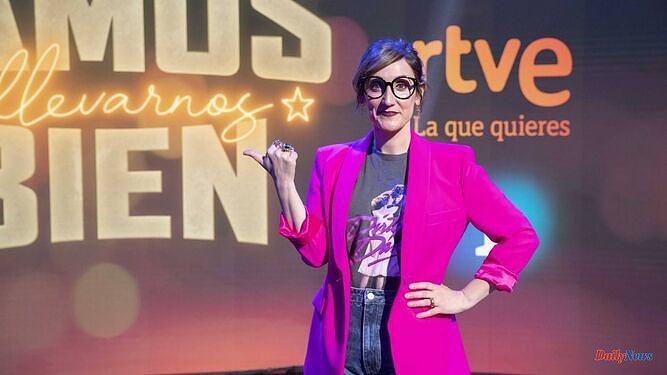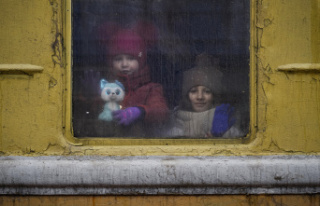On January 31, a few days before the Ana Morgade program, Let's Get Along, was released on La 1, the interim president of RTVE responded to a parliamentary question from the PP about the contracts of the public entity with the production company The Pool in the last 8 years. At that time, few gave importance to the costs of the numerous productions, but now, when one of the programs was released and canceled practically at the same time, that response has generated interest due to the cost of the program, the agreed episodes and because obviously what RTVE paid has fallen on deaf ears.
The amount of the contract for Let's get along with The Pool was 3,529,011.06 euros for 10 episodes lasting approximately 100 minutes each. Of those 10 episodes, only one was broadcast on Monday of last week in prime time on La 1. RTVE decided, as announced by Ana Morgade herself, to cancel the program hours after it was broadcast.
"We have put time, effort and great enthusiasm, but we have not been able to connect with the audience", assured the presenter, humorously affirming that they had less audience than teletext.
"The program will try to shine again and return to the screens in a few months, but I can not be in it, I have other adventures agreed." The humorist regretted that "we left after just one try, what can we do" and expressed her regret for "not having continued working to find a way for the program to connect, to make people laugh, to work".
Let's Get Along premiered on La 1 at night with Ana Morgade, and the participation of Miguel Maldonado, María Gómez, Miki Nadal and La Terremoto de Alcorcón and the singer Blanca Paloma who just a couple of days before had been elected Spanish representative at Eurovision.
The audience data was much lower than expected: it stayed at 4.6% of the share; around 486,000 viewers. It was scheduled to be broadcast at 10:00 p.m. but, after the earthquake in Turkey and Syria, RTVE delayed it until 10:50 p.m. to broadcast an informative special beforehand, which obtained slightly higher numbers (5.1% share; 749,000 viewers). ). The first program was broadcast, therefore, almost an hour later than initially planned and with less audience in front of the screen.
Even so, that 4.6% share is half the average for the channel on that day and in a time slot as important as prime time: TVE 1 scored 9.3% on Monday compared to 12.2% of Telecinco and 15.9% of Antena 3.
RTVE had presented this bet as "a current affairs program with humour, interviews and reports in which the one who makes you laugh the most wins". The project had not started well. Another professional in the media, Marisol Galdón, publicly commented on her strangeness due to the fact that it was called Let's Get Along, a name identical to that of a project that she herself had presented to the network. In a message on social networks, she also showed the registration in the Intellectual Property Registry.
Canceled immediately and with the forecast, although it has not been confirmed by the public entity, to recover it in some way. The surprising thing is that Vamos a llevarnos bien, a format very similar to La Noche D, from the same production company, and which was first presented by Dani Rovira and then Eva Soriano, in none of its three seasons did it reach the cost of Vamos a llegarnos bien.
The first cost RTVE 3,097,494 euros, the second, 3,148,119 euros and the last, 2,941,586. Not to mention that, although it did not reach double audience figures, the audience for Night D was around 8%, almost double that of Let's Get Along.
According to the criteria of The Trust Project












